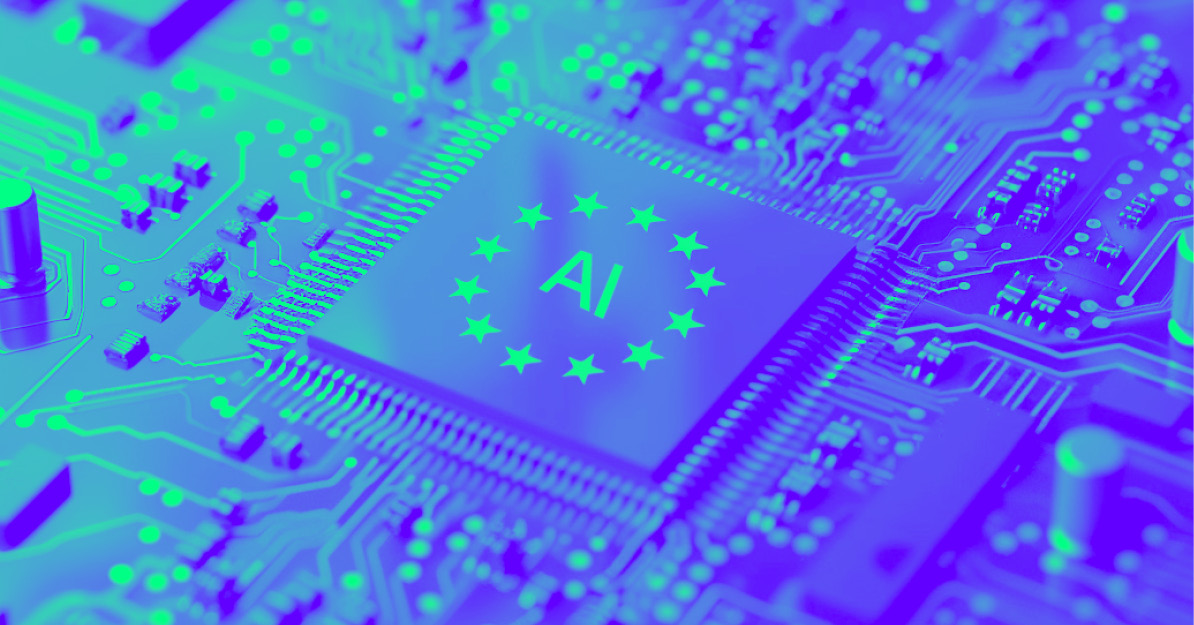Reconciling AI Innovation with Privacy Protection
Reconciling AI Innovation with Privacy Protection. Thoughts of Daniele Panfilo.
 Daniele Panfilo, CEO @ Aindo.
Daniele Panfilo, CEO @ Aindo.
Artificial Intelligence (AI) and data privacy have recently gained widespread attention. Tech leaders, including Elon Musk, called for a moratorium on AI development over alleged societal risks. Mere days later, Italy banned ChatGPT over privacy concerns. Other states are now reconsidering their positions on the matter.
How serious are these concerns? And what are the ramifications of restrictions on AI technology? To find out, we ask Daniele Panfilo for his stance on the matter. Daniele is an expert in AI and data privacy, authoring a PhD thesis and various peer-reviewed scientific publications on the subjects. He is also the CEO of Aindo - a startup dedicated to making AI innovation available securely and responsibly.
What are your thoughts on the proposed moratorium on advanced AI?
I started my professional career in The Netherlands. For over two years, I worked there as an AI scientist at the Medtronic Bakken Research Centre. Subsequently, I joined Allianz Technology in Trieste, where I was the principal data scientist in the business development team. These experiences have really shaped my thoughts on AI.
In both these positions, I witnessed first-hand how big the impact of AI is: by properly analysing data, not only can business targets be much easier achieved, lives can even be saved. I therefore think that the moratorium would do serious harm: AI directly improves people’s well-being and leads to societal progress.
It was also through these early work experiences that I shaped my vision to make AI available to the world in a secure, ethical, and responsible manner. To do so, we must use AI to target the right problems and we must respect the individual’s right to privacy in the process.
Is there a conflict between AI innovation and privacy protection?
AI innovation typically involves processing vast quantities of data. For example, a hospital may want to develop a prognostic AI model. This model will detect diseases in an early stage, optimising the overall patient experience.
For such a model to be highly accurate, it has to be constructed and fine-tuned with patient data. From such data, it can infer relevant prognostic patterns. Patient data is highly sensitive. It is therefore difficult for the hospital to develop the AI model: data cannot be shared with external or even cross-departmental AI specialists.
How does this relate to the recent Italian ban of ChatGPT?
ChatGPT also processes huge quantities of personal data. Whenever you ask ChatGPT a question, the app learns something about you: what your interests are; what you are doing; even what your relationship with your family is like. This data allows the app to improve its performance. The more it understands people, the more targeted its answers become.
The problem with ChatGPT’s big data collection is that we do not know what happens to our personal information. What AI techniques are applied to it? Is the data resold to other interested parties? If so, to whom and for what purposes? All these questions and more should be answered before we can make an informed decision on whether to use the app.
The ban of the app illustrates a conundrum: we should simultaneously reap the benefits of AI technology and protect people’s right to privacy.
And you address this conundrum both as a scientist and as an entrepreneur?
Indeed! I knew I needed two things to solve this conundrum: advanced expertise in AI and a way to bring my solutions to the world.
As a researcher, I have a PhD in deep learning generative models and data privacy. Generative models produce synthetic data - data that is entirely artificial, so free of personal information - that retains all the patterns of real data [Find out how this works in Aindo’s blog]. Synthetic data can be used for data analysis, AI development, business intelligence, software testing, and more. All without breaching people’s privacy. It is quickly gaining traction for reconciling data privacy with innovation.
Our company Aindo is a startup of the International School of Advanced Studies (SISSA) in Trieste, Italy. We are dedicated to bringing the highest quality of synthetic data to market through our own innovations. Aindo’s Synthetic Data Platform makes leveraging the power of synthetic data effortless. Find how this accelerates AI innovation in Aindo’s blog.
Final question: what is the future of synthetic data technology?
Synthetic data is quickly becoming an industry standard. Gartner predicts that by 2024, 60% of data used for analysis and AI development will be synthetic 1. They further predict that the volume of synthetic data in AI development will grow at a rate three times higher than that of real data. By 2030, synthetic data will completely overshadow real data in volume.
Governmental institutions are becoming increasingly aware of the impact AI has on society. The European Union recently launched the European Health Data Space 2, an initiative to foster the flow of information between Member States. More shared data spaces will follow in the near future. The G7 echoes these ambitions, calling for a free international flow of information 3. The American government recently released a strategy to advance privacy-preserving data sharing and analytics 4. This strategy will increase spending in technologies that facilitate AI development while protecting individuals’ privacy.
Synthetic data can help achieve these ambitions by establishing new, democratised data ecosystems. In these ecosystems, information can be exchanged, traded and explored across boundaries. This will accelerate AI development in healthcare, business, compliance, environmental policy and more. In fact, 10% of governments globally will use synthetic data for these societal purposes by 2025 1.
Footnotes
-
Judah, S., White, A., Sicular, S., Jones, C.J., De Simoni, G., Friedman, T., Beyer, M., Heizenberg, J. and Parker, S., (2020). “Gartner Predicts 2021: Data and Analytics Strategies to Govern, Scale and Transform Digital Business.” ↩ ↩2
-
https://health.ec.europa.eu/ehealth-digital-health-and-care/european-health-data-space_en ↩
-
https://www.wired.it/article/privacy-g7-europa-stati-uniti/ ↩
-
https://www.whitehouse.gov/wp-content/uploads/2023/03/National-Strategy-to-Advance-Privacy-Preserving-Data-Sharing-and-Analytics.pdf ↩


